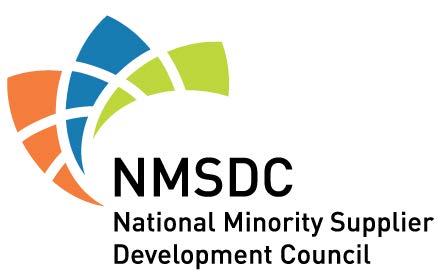Welcome to our blog post on networking strategies! As a highly knowledgeable and experienced professional, I am thrilled to provide some advice that can help you sharpen your networking skills. In today’s highly competitive business world, making connections is essential for small businesses and business leaders alike.
Throughout this article, we will discuss the importance of attending business networking events and building relationships through social media. We’ll also explore how to make the most out of your networking efforts by providing tips on effective communication and follow-up techniques.
With years of experience or none, this article will offer valuable insight to enhance your business connections and take them to the next level. By employing these practices in your daily regimen, you can construct a strong network that bolsters both individual and professional development.
So let’s dive in and discover how you can become a master at networking!
Table of Contents:
- Importance of Networking for Entrepreneurs
- Setting Goals for Networking
- Preparing for Networking Events
- Making Meaningful Connections
- FAQs in Relation to Networking Strategies for Entrepreneurs
- Conclusion
Importance of Networking for Entrepreneurs
Networking is an essential part of entrepreneurship. It allows entrepreneurs to build relationships with potential customers, partners, and mentors who can provide valuable insights into the industry and help them succeed in their business ventures. Establishing connections with the right individuals can unlock possibilities that would not be attainable otherwise.
Developing a strong network starts by setting goals for networking. This could include attending specific events or meeting certain people within your field of interest. Once you have set your goals, it’s important to diversify your network by reaching out to different types of professionals from various industries and backgrounds. By expanding your circle of contacts, you can gain a wider range of views on any subject matter which could be advantageous when managing an enterprise.
When attending networking events, it is essential to come armed with an elevator pitch that succinctly describes what you do in a single sentence, as well as business cards and any other relevant materials such as brochures or product samples. Engaging with others by posing thoughtful queries can be a great way to create substantial connections when networking. Taking the initiative to capitalize on these opportunities can be beneficial for entrepreneurs, as it allows them to expand their network and cultivate meaningful ties.
Leveraging social media platforms such as LinkedIn and Facebook groups is a great way to give your network a boost, enabling you to connect with professionals beyond geographical limitations. With the abundance of digital tools and resources now available, professional growth has become more accessible than ever before. Don’t forget that building meaningful relationships takes more than just expecting something in return; rather, offering value without any strings attached helps create trust between both parties involved over time.
Finally, honing networking skills takes practice but once mastered can pay off dividends in the long term. Developing active listening skills enables entrepreneurs to listen more than talk during conversations, thus gaining a better understanding of others’ perspectives. Additionally, valuing the importance of follow-up meetings after an initial introduction further strengthens the connection made earlier on and helps foster stronger bonds moving forward, all while making sure to stay at the top of mind for those met previously.
Networking is a must for any entrepreneur looking to achieve success, and devising an effective plan can help make the most of every chance. Setting aims for connecting can help you to stay concentrated on your ambitions and increase the likelihood of achieving them.
Setting Goals for Networking
Having clear goals in mind is essential for making the most out of networking events. Prior to participating in any gathering, business owners should set aside the effort to pinpoint significant individuals they wish to get together with and plan future conferences with them after. This will help focus their efforts on building meaningful relationships that can benefit their business.
When setting goals for networking, it’s important to be realistic about what you can achieve during an event. Realizing the limitations of a particular event, it might not be possible to make contact with all desired contacts. That’s why entrepreneurs should prioritize their contacts and plan ahead so they can make the most of each conversation.
Another way to maximize your time at a networking event is by preparing an effective elevator pitch beforehand. Having a well-crafted introduction ready allows entrepreneurs to quickly capture someone’s attention and explain who they are and what services or products they offer in just a few sentences. Crafting an interesting story or using humor can also help make your pitch more memorable and engaging for potential contacts or customers.
Business cards are another great tool for helping entrepreneurs stand out from other attendees at a networking event – but only if used correctly. They should include all relevant contact information as well as some additional details such as social media handles or website links that provide further insight into your work history or industry experience. Handing out these cards strategically throughout conversations will ensure that interested parties have easy access to all necessary details when looking up more information later on down the line
Don’t be daunted by the process of making meaningful connections at events; there are plenty of helpful tips online about how to approach different types of people professionally yet still make an impression. Keywords such as “active listening”, “offering value” and “follow-up meetings” should all feature in your arsenal for a successful networking experience. With some practice, you can become confident in any social setting.
Social media platforms like LinkedIn and Facebook groups also present unique opportunities for expanding one’s network outside traditional gatherings too – which could prove beneficial especially now since many physical events remain cancelled due to Covid-19 safety restrictions worldwide Building professional relationships via digital channels requires similar skillsets however: crafting compelling introductions & messages plus leveraging strong visuals (headshots/logos) alongside informative content pieces (articles/videos). These methods might seem daunting initially but once mastered properly allow businesses owners & professionals alike unprecedented access & exposure across global markets – something no brick n’ mortar location ever could hope match
Finally honing those hard-earned skills through practice makes perfect here; active listening techniques combined with good old fashioned follow ups afterward go hand in hand when creating lasting impressions upon new acquaintances made both online and off. Valuing each individual connection regardless of whether leads pan out eventually helps build trustworthiness within circles where credibility counts above all else, thus proving invaluable over long term success cycles rather than short lived trends within fickle industries today.
Setting goals for networking is essential to building a strong and successful network. To diversify your connections, it’s important to take an organized approach that includes researching potential contacts and creating meaningful conversations with them.
Preparing for Networking Events
Networking events offer a great chance to connect with fresh faces, extend your business connections and advance your enterprise. Preparation is key to making the most of these occasions. To ensure you’re ready for any networking event, there are two important steps: developing an effective elevator pitch and bringing business cards.
A concise description of your identity and purpose that can be delivered in a limited amount of time, usually 30 seconds or less – this is an elevator pitch. It should capture your unique value proposition as well as why someone should work with or invest in you or your company. Your elevator pitch should also include details about what makes you stand out from others in the same field and how potential partners could benefit from working with you. Examples of successful elevator pitches include “I help small businesses increase their revenue by optimizing their marketing strategies” or “I specialize in creating engaging websites that drive conversions”.
Business cards serve as tangible reminders of conversations had at networking events, so they shouldn’t be overlooked when preparing for one. For an effective business card, include concise yet impactful details such as name, contact info, job title/position and website URL (if applicable) on the front side; then use the back for a tagline that succinctly summarizes what sets you apart from other professionals in your industry. Additionally, consider adding a tagline on the back side of the card that succinctly summarizes what sets you apart from other professionals within your industry; this will give recipients something memorable to associate with after leaving the event.
Preparing for networking events is essential to making meaningful connections. By developing an effective elevator pitch, bringing business cards, and asking thoughtful questions you can start building relationships that will benefit your career in the long run.
Making Meaningful Connections
Making meaningful connections at networking events is an essential skill for entrepreneurs. Asking thoughtful questions and offering value without expecting anything in return are key to making lasting impressions with potential contacts.
When engaging with people at a networking event, it’s important to ask relevant questions that demonstrate your interest in them as individuals. Ask open-ended questions that allow the person you’re speaking with to elaborate on their experiences or interests. By asking questions that give the person you’re speaking with a chance to discuss their interests and experiences, it conveys your interest in getting to know them on a more personal level which can foster strong connections for potential business opportunities. It also shows that you care about getting to know them beyond just a professional level, which could be beneficial down the line if there’s ever an opportunity for collaboration or partnership between your businesses.
In addition to asking thoughtful questions, offering value without expecting anything in return is another great way of making meaningful connections at networking events. You can offer advice based on your own experiences or share resources such as articles, books, podcasts etc., that have been helpful for you professionally or personally. Doing so not only provides valuable information but also demonstrates thoughtfulness and generosity on your part; qualities which tend to leave a positive impression on those around us and make us memorable when we meet new people at these types of events.
Lastly, active listening skills are critical when engaging with others during these interactions; something many entrepreneurs struggle with due to their eagerness to share ideas and experiences right away instead of taking time out firstly listen attentively before responding accordingly . Being present while having conversations helps create stronger relationships by showing respect towards those we engage with by giving our undivided attention while they talk – this goes a long way. It allows us both understand each other better by being mindful throughout the conversation rather than simply thinking about what our response should be next without actually listening properly firstly .
In conclusion, establishing meaningful connections through thoughtful questioning, providing value where possible, actively listening and paying attention all go hand-in-hand when building successful networks within any entrepreneurial environment.
Making meaningful connections is essential for entrepreneurs to build a successful network. Leveraging social media platforms can help expand your reach and open up new opportunities.
FAQs in Relation to Networking Strategies for Entrepreneurs
How does networking help entrepreneurs?
Networking is an invaluable tool for entrepreneurs as it allows them to build relationships with potential partners, customers, and investors. Networking can open up doors to resources that would otherwise be inaccessible. Through networking, entrepreneurs can learn from other successful business owners and industry experts who have had success in their own ventures, enabling them to benefit from their experiences. Additionally, networking gives entrepreneurs a platform to share ideas and strategies while gaining insight into what works best in different markets or industries. In short, networking helps entrepreneurs expand their reach beyond traditional boundaries by connecting them with people who may help grow their business ventures.
What are business networking effective strategies?
Interacting with the right people is essential for any thriving enterprise. Effective networking strategies involve connecting with the right people, building relationships, and creating value for others. Identify potential contacts who could benefit from your services and expertise, then reach out to them through social media platforms. Connect with potential contacts in your field through social media platforms such as LinkedIn or Twitter, introducing yourself and getting to know them. Ask questions about their work and provide helpful advice when possible; this will help build trust over time. Additionally, attend conferences and other events related to your field so that you can meet more people face-to-face. Lastly, don’t forget to follow up after initial contact; staying top of mind will ensure lasting connections are formed.
What is entrepreneurship networking?
Networking among entrepreneurs involves connecting to exchange info, resources and guidance. It can involve joining online groups or attending in-person events where individuals can meet face-to-face and discuss their business goals. Through these networks, entrepreneurs are able to learn from one another’s experiences while also building relationships that may prove beneficial down the road. Additionally, entrepreneurship networks often provide access to mentors who have experience starting a business and offer guidance on how best to do so successfully.
Why networking is extremely important in entrepreneurship?
Networking offers entrepreneurs the chance to get advice from those who have been in their shoes before, aiding them when it comes to starting or expanding a business. Additionally, networking gives entrepreneurs access to new opportunities that they may not have been aware of before. Lastly, by connecting with like-minded individuals within the same industry or sector an entrepreneur will be able to stay up-to-date on trends and advancements that could benefit their own venture.
Conclusion
To be successful as an entrepreneur, it is essential to develop a comprehensive networking plan that incorporates goals and strategies such as attending events, making connections at those events, leveraging social media platforms and existing relationships. By following these five tips, you can master the art of connecting with others and maximize your chances of finding new opportunities. Networking strategies such as understanding your goals, preparing for events, making connections at events, utilizing social media platforms and leveraging existing relationships are essential components that will help entrepreneurs succeed in their business endeavors.
If you know of anyone who could benefit from a complimentary marketing audit, (normaly $497) send them this blog post and have them CLICK HERE >>> and arrange a 45 minute professional audit with one of our networking professionals.








